Understanding Islam: The Definitive Guide
Noushad Muneer Wafy Al Azhari
Preface
Understanding Islam requires knowledge, and every Muslim is obligated to do so. As a Muslim, there were times in your life when some of your non-Muslim friends, or someone you knew came to you to learn more about Islam. In some of these instances, you may have found that you were not able to explain to your non-Muslim friend what exactly is Islam, or why you are a Muslim. Have you ever been in these shoes, and felt disappointed by your inability to communicate Islam better? Worry not, as this guide elaborates everything you need to know about Islam.
This guide is especially suitable to teach Islam for beginners. Understanding Islam, its history, fundamentals, the key aspects of the sacred Quran, the concept of the afterlife, and knowing and loving the Prophet Muhammad, Peace and Blessings be upon him, are all important key markers of Islamic knowledge that will enable you to better communicate what you need to know about Islam.
This is why there is a need to learn more about Islam for beginners; to understand the basics of Islam in a simple manner. As far as a beginner is concerned, he/she needs to learn everything gradually. The most important knowledge will come first and the remaining concepts and teachings will follow on a basis of priority.
Islam is a religion in which your beliefs and practices are important. Therefore, in the initial learning stage, you may come across certain things which you need to learn and inculcate through practice. A guidebook can barely help you here unless it is accompanied by an instructor. Nonetheless, with a guidebook, the process of understanding the basics and practicing the key basic aspects will be easier, and set you on a path of greater understanding of Islam.
Content
Chapter 01
History of Islam
Chapter 02
The Muslim faith
Chapter 03
The five pillars of Islam
Chapter 04
The Biography of Prophet Muhammad
Chapter 05
The Significance of Al-Quran
Chapter 06
The Concept of Life after Death
Chapter 01
History of Islam
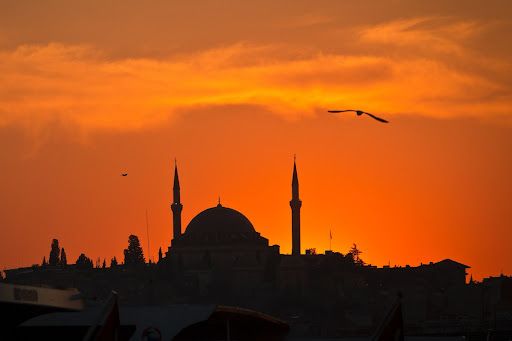
In this chapter, we will dissect the meaning of the word Islam, and summarise the short history of Islam so you are able to understand the origin of the word and truly reflect on the amazing miracles of how Islam has expanded throughout the entire world.
The word ‘Islam’ is derived from the Arabic word (إسلام) - which means ‘surrender’. As a Muslim, you surrender yourself to almighty Allah, your Creator. You agree that there is no God, but Allah and you are very certain that it is Allah, who created you and he is your only Sustainer. If you understand Islam based on this core principle, you will realize everything else comprised within are simply explaining this very truth.
The creator of this Universe has sent his Messengers to humankind over centuries to convey the Message of Islam. It can be said that the history of Islam is as old as the history of humanity. Allah says in the holy Quran:
إِذْ قَالَ لَهُۥ رَبُّهُۥٓ أَسْلِمْ ۖ قَالَ أَسْلَمْتُ لِرَبِّ ٱلْعَـٰلَمِينَ
“When his Lord said to him, "Submit," he said, "I have submitted [in Islam] to the Lord of the worlds." (Qur’an 2:131).
In fact, the holy Quran did not speak about a second religion other than Islam. Prophet Adam, Peace be upon him, the very first human being, and all other prophets mentioned in the Quran followed Islam as their religion.
But today, those who attribute themselves to different prophets are known by different names. The followers of Prophet Isa Peace be upon him, are known as Christians, the followers of Prophet Musa, Peace be upon him, are known as Jews, and so on. The last prophet sent by Almighty Allah is Prophet Muhammad, Peace and Blessings be upon him, and he taught humankind the message of Islam.
In regards to a brief history of Islam, it all started from the birth of a miraculous and blessed man. Prophet Muhammad, Peace and Blessings be upon him, was born in Mecca in the year 571 AD. Allah made him as His Messenger at the age of forty. As per the authentic Hadith collections, Prophet Muhammad, Peace and Blessings be upon him, received the revelation from Almighty Allah in the cave of Hira’ where he used to spend time alone regularly. Allah sent the angel Jibril, may Allah be pleased with him, there to convey the very first verses from the holy Quran.
Allah says:
هُوَ ٱلَّذِى بَعَثَ فِى ٱلْأُمِّيِّـۧنَ رَسُولًا مِّنْهُمْ يَتْلُوا۟ عَلَيْهِمْ ءَايَـٰتِهِۦ وَيُزَكِّيهِمْ وَيُعَلِّمُهُمُ ٱلْكِتَـٰبَ وَٱلْحِكْمَةَ وَإِن كَانُوا۟ مِن قَبْلُ لَفِى ضَلَـٰلٍ مُّبِينٍ
“It is He Who has sent amongst the unlettered a messenger from themselves, to rehearse to them His Signs, to sanctify them, and to instruct them in Scripture and Wisdom- although they had been, before, in manifest error” (Qur’an 62:02)
The verse mentioned above clearly explains the basic idea behind the prophethood of Prophet Muhammad ﷺ. In Mecca, the Prophet faced a very challenging period. Once he had announced the message of Islam, even his family members and those close to him opposed him and became enemies. After prophethood, he lived in Mecca for 13 years before migrating to the city of Medina, as instructed by Allah.
Chapter 02
The Muslim faith

If you are accepting Islam as your religion, the first thing you need to know about is the declaration of Muslim faith. Faith is the most important attribute for a Muslim. In this section, you will learn more about the six beliefs of Islam and the basics of Muslim faith. Muslim scholars define Islam as a combination of three things; speech by the tongue, belief within the heart, and actions by the body parts.
First of all, you will learn how the declaration of Muslim faith is uttered. This requires you to declare the ‘shahadah’ explicitly with your tongue. The Arabic word ‘shahadah’ simply means the testimony of Muslim faith, in which you have to say: I bear witness that, there is no God except Allah, and Muhammad ﷺ is the Messenger of Allah. Once you have declared the shahada, you will be a Muslim and now you need to learn and find belief in the six beliefs of Islamic faith.
If you are accepting Islam as your religion, the first thing you need to know about is the declaration of Muslim faith. Faith is the most important attribute for a Muslim. In this section, you will learn more about the six beliefs of Islam and the basics of Muslim faith. Muslim scholars define Islam as a combination of three things; speech by the tongue, belief within the heart, and actions by the body parts.
Six beliefs of Islam
The six articles of the Islamic faith are:
1. Belief in Allah
2. Belief in His Angels
3. Belief in His Books
4. Belief in His Messengers
5. Belief in the Day of Judgement
6. Belief in His predestination, whether it be good or bad.
2. Belief in His Angels
3. Belief in His Books
4. Belief in His Messengers
5. Belief in the Day of Judgement
6. Belief in His predestination, whether it be good or bad.
A long Hadith reported by Prophet Muhammad ﷺ is an authentic proof of these beliefs. It indicates the reply of the Prophet ﷺ to Jibril, may Allah be pleased with him. The Angel of Allah asked the Prophet ﷺ: “Tell me what is Iman?” The Prophet ﷺ replied: Iman is to believe in Allah, His (Allah’s) Angels, His Books, His Messengers, and to believe in the Day of Judgment and the good and the evil fate (ordained by your God).
Now we can go deeper into the basics of these six beliefs of Islamic faith. This will help you towards understanding the Muslim faith a lot better and what they mean.
Faith in Allah means that you shall believe that there is no God, but Allah and He has no companions. Once you comprehend the meaning of the oneness of your creator Allah Almighty, you will definitely submit your will to Him. You will agree that He is the only one worthy of worship.
Faith in His Angels means that, you shall believe that Allah has created Angels among his creatures. Allah has created them extremely different from human beings in all means. Allah has assigned each one amongst the millions of angels with different duties and they are keen to obey His orders. Jibril, Mika’il and Malik are the names of a few angels mentioned in the holy Quran.
The third article of Islamic faith is the belief in His Books. These Books are revealed by Allah almighty to the different societies and communities through the time via His messengers in order to guide them to the light of truth. The holy Quran was revealed to Prophet Muhammad ﷺ. The Zabur, Injil are further examples of His Books.
Another important faith a Muslim must have is belief in Allah’s Messengers. Allah Almighty has selected Messengers from each society to teach the people of that era about their creator and their duties to him. These Messengers were to guide their people to the true message of Islam. Prophet Muhammad ﷺ, the most glorious among the prophets of all time, the Prophet Ibrahim and the Prophet Musa are a few names among the twenty-five Prophets’ names mentioned in the Quran.
The last of the Six Articles of Muslim faith is to believe in the predestination of Allah Almighty, whether it is good or bad. This belief will enable you to practice patience when you come across anything bad in your life. Because you are sure that you will neither receive something nor will you miss anything against what Allah has predestined for you.
But this does not mean that your effort is not important. Allah says in the Quran:
فَأَمَّا مَن ثَقُلَتْ مَوَٰزِينُهُۥ
فَهُوَ فِى عِيشَةٍ رَّاضِيَةٍ
وَأَمَّا مَنْ خَفَّتْ مَوَٰزِينُهُۥ
فَأُمُّهُۥ هَاوِيَةٌ
‘’Then as for one whose scales are heavy (with good deeds), he will have a pleasant life. But as for one whose scales are light; his refuge will be an abyss”[1](Qur’an 101: 6-9)
The collection of these beliefs is widely known among the Muslims as the six pillars of Iman (faith in Arabic). Once you declare your shahada and believe in these six pillars of Islamic faith, you have fulfilled the first two parts of Islam. The remaining part is regarding the actions by the body parts.
Chapter 03
The five pillars of Islam
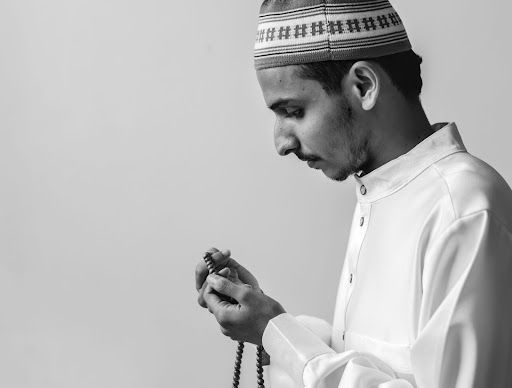
You might be wondering; how many pillars are there in Islam? Allah The phrase ‘five pillars of Islam’ refers to the obligations as commanded by Allah Almighty, for each and every Muslim man and woman to abide by a set of deeds and practices throughout his or her life. These deeds are known as the five pillars of Islam. Allah has taught us the details of these 5 pillars in the holy Quran and through his Messenger Prophet Muhammad ﷺ.
Here, you will learn of what the five pillars of Islam are and how to perform each one of them:
1. Shahadah; the profession of faith
In Chapter 2, you have learnt the definition and practical enunciation of the Shahadah. The Shahadah can be regarded as the entrance to Islam. One who utters the Shahadah mindfully is regarded as a Muslim. There are Sahih Hadiths saying; one who says the Shahadah will be rewarded the paradise in the life after death even if he does not do so many good deeds. This will be only done after Allah gives him all the punishments in the hellfire for his misdoings.
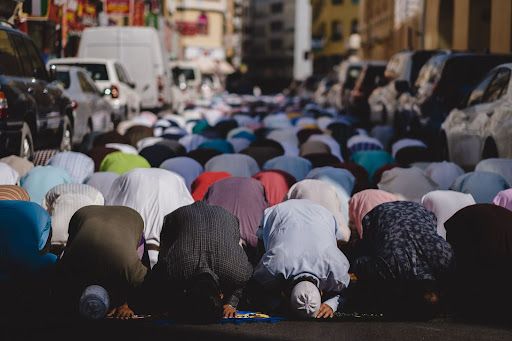
2. Salah; Prayer
As a Muslim, you need to pray five times a day. The prayer refers to an act of the body by which you start by saying ‘Allahu Akbar’ (Allah is great), and end by saying the words of Salaam (peace). In between, you are required to recite certain parts of the holy Quran and perform the adoration in a prescribed manner which includes bowing down and chanting particular prayers.
Subh, Zuhr, Asar, Maghrib and Isha’ are the five prayers with specific timings of when they are to be performed, beginning from dawn to dusk on a daily basis. The holy Quran and Prophet ﷺ has promised glorious rewards for those who strictly follow the routine prayers.As a Muslim, you need to pray five times a day. The prayer refers to an act of the body by which you start by saying ‘Allahu Akbar’ (Allah is great), and end by saying the words of Salaam (peace). In between, you are required to recite certain parts of the holy Quran and perform the adoration in a prescribed manner which includes bowing down and chanting particular prayers.
Allah says:
وَٱلَّذِينَ هُمْ عَلَىٰ صَلَوَٰتِهِمْ يُحَافِظُونَ
أُو۟لَـٰٓئِكَ هُمُ ٱلْوَٰرِثُونَ
ٱلَّذِينَ يَرِثُونَ ٱلْفِرْدَوْسَ هُمْ فِيهَا خَـٰلِدُونَ
“And those who strictly guard their prayers (at their fixed stated hours). These are indeed the inheritors. Who shall inherit the Firdaws (Paradise). They shall dwell therein forever.”} (Qur’an, 23: 9-11)

3. Zakat; Alms
The third pillar of Islam is known as Zakat which means giving compulsory alms to a section of people who fall within the criteria to receive zakat, according to the law of Sharia’. This is a compulsory social act which will help you to purify your wealth and improve the living standards of your brothers and sisters in Islam. Zakat is compulsory for gold, silver, commercial properties, crops and cattle, while it is not associated with land, vehicles or other home appliances.
The holy Quran has clearly mentioned to whom the Zakat must be given;
إِنَّمَا ٱلصَّدَقَـٰتُ لِلْفُقَرَآءِ وَٱلْمَسَـٰكِينِ وَٱلْعَـٰمِلِينَ عَلَيْهَا وَٱلْمُؤَلَّفَةِ قُلُوبُهُمْ وَفِى ٱلرِّقَابِ وَٱلْغَـٰرِمِينَ
وَفِى سَبِيلِ ٱللَّهِ وَٱبْنِ ٱلسَّبِيلِ ۖ فَرِيضَةً مِّنَ ٱللَّهِ ۗ وَٱللَّهُ عَلِيمٌ حَكِيمٌ
“Indeed, [prescribed] charitable offerings are only [to be given] to the poor and the indigent, and to those who work on [administering] it, and to those whose hearts are to be reconciled, and to [free] those in bondage, and to the debt-ridden, and for the cause of God, and to the wayfarer. [This is] an obligation from God. And God is all-knowing, all-wise.” (Qur’an 9:60)
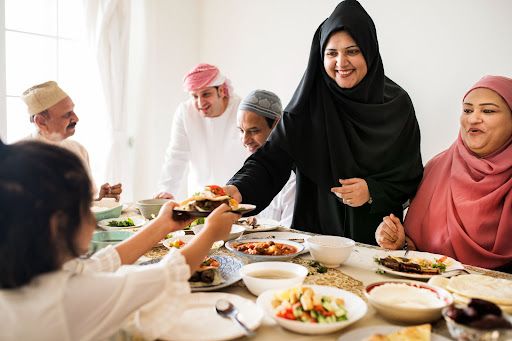
4. Sawm; Fasting
The fourth pillar of Islam is known as Sawm or fasting. You are obliged to fast in the month of Ramadan in the Islamic calendar. During the fast, you will have to refrain from having food and water, activities such as having sexual intercourse, and others, from dawn to sunset. Fasting is compulsory and obligated upon all Muslims who have reached puberty. Patients and travelers are exempted from Fasting, subject to certain conditions.
Allah says in the holy Quran;
يَـٰٓأَيُّهَا ٱلَّذِينَ ءَامَنُوا۟ كُتِبَ عَلَيْكُمُ ٱلصِّيَامُ كَمَا كُتِبَ عَلَى ٱلَّذِينَ مِن قَبْلِكُمْ لَعَلَّكُمْ تَتَّقُونَ
"O you who believe, fasting is prescribed for you as it was prescribed for those before you, that you may develop God-consciousness." (Qur’an 2:183)
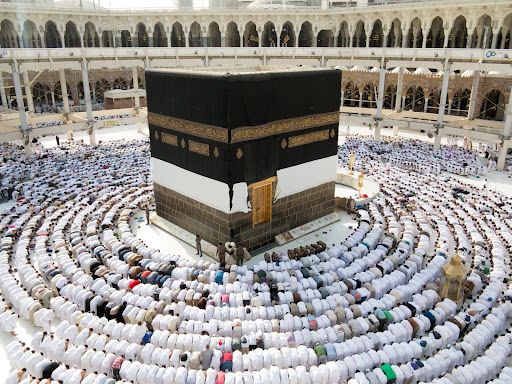
5. Hajj; Pilgrimage
Islam’s final pillar is Hajj or Pilgrimage. If you are a Muslim with good health and wealth that enables you to visit Mecca without any serious hindrances, it is obligatory for you to perform the Hajj pilgrimage. Hajj refers to a set of prescribed activities you will have to perform at the holy land of Mecca. The Hajj pilgrimage is held in the month of Zulhijjah every year. This is also considered as an annual gathering of world Muslims.
For a more simplified and comprehensive notes on the five pillars of Islam, you can read here.
Chapter 04
The Biography of Prophet Muhammad
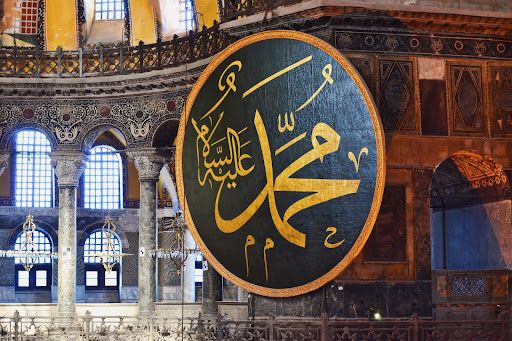
Prophet Muhammad; a brief biography
In this topic, we will cover a short history of Islam which was brought by the Prophet ﷺ himself to all mankind. Prophet Muhammad ﷺ is the last and final messenger of Almighty Allah. The holy Quran explicitly proclaims this truth and says;
مَّا كَانَ مُحَمَّدٌ أَبَآ أَحَدٍ مِّن رِّجَالِكُمْ وَلَـٰكِن رَّسُولَ ٱللَّهِ وَخَاتَمَ ٱلنَّبِيِّـۧنَ ۗ وَكَانَ ٱللَّهُ بِكُلِّ شَىْءٍ عَلِيمًا
“Muhammad is not the father of any of your men, but (he is) the Messenger of Allah and the Seal of the Prophets: and Allah has full knowledge of all things” (Qur’an 33:40).
It is very necessary for every Muslim to learn the sirah of Prophet Muhammad ﷺ and the details regarding his prophethood.
Background of Mecca when the Prophet ﷺ was born
The blessed Prophet ﷺ was born in Mecca in the Banu Hashim family of the Quraysh tribe on 12th Rabi-ul-awwal, 53 years before the Hijra (571 AD, April 22, according to an authentic opinion). It was a time when the Arabian Peninsula was living through their ‘worst time’, as noted in its history. Historians later called this period ‘the dark age’ for many reasons. The barbaric society that existed in Mecca then was notorious for the uncivilized activities they practiced. These practices include burying a female child alive and battling each other for months on end, in large groups, and with sever bloodshed, often sparked by some trivial causes.
By reading and understanding the biography of Prophet Muhammad ﷺ you will come to know how he made a revolutionary change happen in Meccan society of that era, and how it imprinted a new way of life that is practiced to this very day. Prophet Muhammad ﷺ made an unbelievable change by spreading the light of Islam within a short period of time. He, at one point said, as recorded in the sunnah; “My followers are like stars and whoever you follow, you will be guided to truth”
Early life of Prophet
The Prophet ﷺ was born to Abdullah, son of Abdul Muttalib who was the chieftain of the Hashim clan, and Aminah, daughter of Waahib. Abdullah passed away of some ailments at Syria when he went there for business needs. Two months later, Aminah gave birth to Prophet Muhammad ﷺ. It was the year of the famous elephant war among the Arabs.
In Arabic culture those days, the mother does not breastfeed the baby. The child will be handed over to a protector from the Badavi[2] (Bedouin) women. So, the young Muhammad ﷺ grew up under the guardianship of his grandfather, Abdul Muttalib. Halimah, a member of the Banu Sa'd tribe, was assigned to protect Prophet Muhammad ﷺ. After caring for him for four years, she returned the 4-year-old Prophet Muhammad ﷺ to Amina, who lived in Mecca.
When Prophet Muhammad ﷺ was six years old, Amina took him to Madina in order to visit their relatives who lived there. After spending a few days in Madina, Amina passed away during their way back in a place between Mecca and Madina. Eventually Prophet Muhammad's ﷺ grandfather Abdul Muttalib took care of him for the next two years until he was 8 years old. When Abdul Muttalib passed away, Prophet Muhammad ﷺ later grew up under the care of his paternal uncle, Abu Talib.
From early childhood The Prophet ﷺ was a noble person. On some occasions, he used to rear sheep to help Abu Talib, who was not rich. As part of the Hildaf al-Fasul Agreement, signed by the tribes of Arabia as a result of Prophet Muhammad's ﷺ organizational work, all the leaders who signed it undertook the task of protecting the poor who were financially vulnerable. Thus, at an early age, he earned the love of all due to his morality, simple life and loyalty.
Later, the Prophet ﷺ started engaging in business more regularly. He worked as a trade team member for Khadijah bint Khuwailid, a wealthy lady who ran some trade goods in Mecca.
Khadijah was attracted by Prophet Muhammad's ﷺ personality and wished to marry him. She expressed her desire to marry Prophet Muhammad ﷺ to Abu Talib and their marriage took place with the blessings of Abu Talib. At that time, Muhammad was 25 and Khadijah was 40.
His marriage to Khadijah had given Prophet Muhammad ﷺ a high position in society. Moreover, his honesty and good manners made him universally accepted. During the restoration of the Ka'bah under his presidency, the dispute with the Quraish and others over the restoration of Hazrul Azwad was settled amicably.
The beginning of divine messages
Prophet Muhammad ﷺ often went to the nearby Hira Cave and meditated. He was forty years old. One day, while he was praying, an angel named Jibril appeared to him, hugged him, and commanded him to "read." The Prophet ﷺ replied that he could not read. Then the angel Jibril read to him;
ٱقْرَأْ بِٱسْمِ رَبِّكَ ٱلَّذِى خَلَقَ
خَلَقَ ٱلْإِنسَـٰنَ مِنْ عَلَقٍ
ٱقْرَأْ وَرَبُّكَ ٱلْأَكْرَمُ
ٱلَّذِى عَلَّمَ بِٱلْقَلَمِ
عَلَّمَ ٱلْإِنسَـٰنَ مَا لَمْ يَعْلَمْ
“Recite in the name of your Lord who created. Created man from a clinging substance. Recite and Your Lord is the Most Generous, taught by the pen. He taught man what he did not know” (Qur'an 96: 1-5).
It was the beginning of God's message. Later similar divine words were often revealed to the Prophet. The Quran is a collection of them. It is not a prophetic word.
Thus, Allah sent Prophet Muhammad ﷺ to quote and warn the people. He became a prophet. After his appointment as a prophet, he began to preach. Those who knew him intimately had no doubt about the sincerity of the Prophet Muhammad ﷺ. Without hesitancy, Khadijah accepted his message. Soon Abu Bakr, Ali, Uthman and a few others believed that "There is no God, but Allah, Muhammad is the Messenger and Slave of God.
He was later instructed to start preaching publicly. Then he stood on the hill called Safa near Mecca and called to the people. After they had gathered, the Prophet ﷺ asked: “Would you believe me if I told you that an enemy army is here on the other side of the mountain, ready to attack you?”, “We do not know that you lied" they replied. "I warn you, I have received a message from God, I have come as a warning of a terrible punishment. I cannot save you in this world, nor can I promise you protection in the afterlife."
Prophet Muhammad ﷺ continued his mission. Many converted to Islam. This became a headache for the chiefs of Makkah. They sent a leader named Uthbat to him. Uthbat approached the Prophet ﷺ and told him: “If you want to be a ruler, we can make you a ruler. If you want to be rich, we can make you the richest of us, and if you want to marry any woman, we can do it too. It is enough to abandon this new movement”. In response, the Prophet quoted these verses from the Quran:
قُلْ إِنَّمَآ أَنَا۠ بَشَرٌ مِّثْلُكُمْ يُوحَىٰٓ إِلَىَّ أَنَّمَآ إِلَـٰهُكُمْ إِلَـٰهٌ وَٰحِدٌ فَٱسْتَقِيمُوٓا۟ إِلَيْهِ وَٱسْتَغْفِرُوهُ ۗ وَوَيْلٌ لِّلْمُشْرِكِينَ
"Say, 'I am only a human being like you. It has been revealed to me that your God is only one God. So go straight to Him. Woe to the polytheists who associate with Him.' - (Qur'an, 41: 6).
The number of Muslims was increasing. Those who accepted the mission of Prophet Muhammad ﷺ were known as Muslims or those who were completely submissive to God. Their religion is also called "Islam", which means complete obedience to God. Muhammad is not a prophet, he is only the last prophet, and Muslims are commanded not to distinguish between the prophets. (Qur'an 2: 285).
Meccan chiefs were annoyed that the number of Muslims was increasing day by day. Together, they decided to impose sanctions on the Prophet's family. It was decided not to give them grains or other necessities. This greatly distressed the family of the Prophet ﷺ. This condition continued for about three years. In the tenth year of the Prophet's mission, some young non-Muslims forced the leaders to lift this inhumane embargo. Thus, the siege was lifted.
Migration to Madina
Frightened by the growing influence of Islam, the Meccan leaders intensified their persecution and planned to assassinate the Prophet ﷺ. When the persecution became unbearable, the Prophet instructed his followers to flee to Madinah. The Prophet (peace and blessings of Allah be upon him) after 13 years of prorogation of Islam in Mecca, also decided to migrate to Madina. This is popularly known in the Islamic history as Hijra[3]. He left for Madina with his close companion Abu Bakr.
The first thing the Prophet ﷺ did upon arriving in Madinah was to build a center. He established a mosque in Madinah. It was also the center of the new Islamic nation. It was the secretariat of the Islamic State, the court and the refugee center. After the establishment of the center, the Prophet ﷺ ensured its security. The Prophet made a covenant that would ensure internal peace and national security. The aim of the agreement was to achieve peaceful co-operation between Muslims and non-Muslims in Madinah, and all the tribes around Madinah.
The purpose of bearing witness to the fact that Prophet Muhammad ﷺ is a messenger and a servant, is for us to learn from these examples, and to live in the way as shown by the life, character, virtues and practices of Prophet Muhammad ﷺ. We must also believe in what the Prophet ﷺ said - that the world has an end and that God will hold us accountable for this worldly life, and that those who know and obey God will receive heaven, and those who disobey will receive severe hell. (2) Pray five times. (3) Compulsory giving (4) Fasting throughout the month of Ramadan. (5) Those who are able go to Makkah and perform Hajj. The Prophet ﷺ asserted that he was only a human being and that he should not impose divinity on himself.
It was clear that the Meccan chiefs would not allow the newly formed Islamic community and nation to survive. They were very angry with the people of Yathrib (Madinah) who gave them the fear of Prophet Muhammad ﷺ. Obviously, this led to the battles of Badr -the historical battle during the life of the Prophet ﷺ . In the struggle between truth and falsehood, Muslims succeeded against their enemies. After Badr, the Meccan chiefs repeatedly tried to take Madinah, but were unsuccessful.
In the 6th year of the Prophet's arrival in Madinah, he set out on a pilgrimage to the shrine in Makkah. The incident took place in a month when the Arabs believed that war was forbidden. Although they knew that the Prophet had no plans to fight, he was not allowed to enter Mecca. This once again set up a flashpoint for a clash. The Prophet ﷺ did not want that to happen. So, he sent a messenger from the Muslims to negotiate with a representative from the Qurayshi side and made a treaty between both parties.
The treaty was unfavorable to Muslims, but Prophet Muhammad ﷺ compromised on it in order to prevent violence and bloodshed. The main terms of the treaty were that Muslims should return to Madinah without visiting the mosque that year, and that they could visit next year. The treaty also indicated that, if any of the Meccans came to Madinah without the consent of the leaders, they should be deported and if anyone from Madinah returned to Mecca, they should not return. The treaty, known as the Treaty of Hudaybiyah, stated that they would not battle each other for the next 10 years.
In the 8th year of the Hijra, the Quraish of Makkah violated the Treaty of Hudaybiyah. This forced the Prophet ﷺ and his followers to enter Mecca once again. When the Prophet and his Companions entered Makkah, there was no one to oppose them. The townspeople, who had brutally beaten him and his companions and expelled them from their homeland, stood before the Prophet with curiosity and fear, not knowing what to do.
Then the Prophet addressed them and said, 'I tell you today, as Prophet Yusuf said to his brothers; “There is nothing wrong with you today, you are free”. With the conquest of Makkah, the Prophet became the undisputed ruler of Arabia. After visiting the Ka'bah in Makkah, he returned to Madinah.
At this time, the divine message came from Allah announcing the completion of Islam, the blessing to mankind.
اَ لۡيَوۡمَ اَكۡمَلۡتُ لَـكُمۡ دِيۡنَكُمۡ وَاَ تۡمَمۡتُ عَلَيۡكُمۡ نِعۡمَتِىۡ وَرَضِيۡتُ لَـكُمُ الۡاِسۡلَامَ دِيۡنًا
“Today, I have perfected your religion for you, and completed my favour upon you, and I am pleased with Islam as your religion”; '(Qur'an 5: 3).
With this. the prophet hood was fulfilled. The Quran remains a guide in modern times. It is said in the Quran that Allah Himself will protect it. There will be no more prophets or scriptures. The Quran is the guide book till the end of the world.
Demise of Prophet (peace be upon him)
The Prophet ﷺ lived only 3 months after his farewell speech which is known as Hajjathul widaa’. This was held in Makkah where thousands of followers had gathered. From then, they were scattered in different parts of the world to spread the light of Islam. They preached what they learned from the Prophet ﷺ. The holy Prophet ﷺ passed away on the 12th of Rabi ul-Awal, 11 years after Hijra, 632 AD.
This brief history of Islam and the Prophet ﷺ should give you an idea about the life of Prophet Muhammad ﷺ. Once, a group of young Muslim men came to Sayyida Aisha, the wife of Prophet ﷺ and asked her: “How was the character of Prophet Muhammad ﷺ” (peace and blessings of Allah be upon him)? She replied; “His character was Quran”. Muslim men and women over centuries are keen to study his life and follow his teachings. If you are curious to learn more about the biography of the Prophet, Peace and Blessings be upon him, you can click here.
Chapter 05
The Significance of Al-Quran
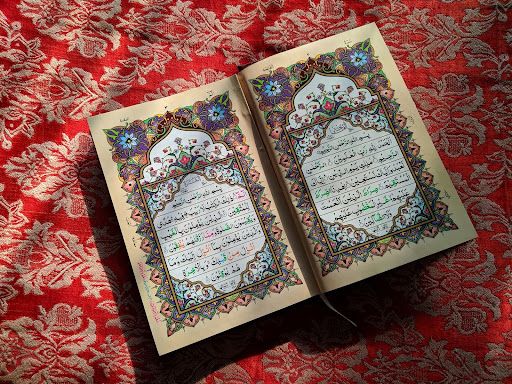
Significance of Holy Quran
Understanding Islam comes from the primary source itself, the Quran and Sunnah. In this topic, we will learn more about Islam through the guidance of the Quran. The Noble Quran is the word of God revealed to his final messenger, Prophet Muhammad ﷺ. Allah has made its recitation itself an act of worship. This Quran was transmitted to later generations in the form of mutawatir[4], beginning with Surat Al-Fatihah and sealed with Surah An-Nas. The Holy Quran consists of 114 chapters and 6236 verses.
The Quran has transformed many hearts from darkness to the light of Islam. The Quran challenged those who were not ready to accept that it is from Allah Almighty. Allah asked them: “And if you are in doubt as to what We have revealed from time to time to Our servant, then produce a Sura like thereunto; and call your witnesses or helpers (If there are any) besides Allah, if your (doubts) are true”
This challenge remained unaccepted as no one could come up with an equivalent to the Quran or something similar to it. The fact is that the divine book is impossible to challenge. It is very rich in terms of the language, literature, content and all other aspects. You will understand how you can seek a straight path and knowledge from the holy Quran.
The holy Quran contains many verses that talk about the greatness of Allah almighty and the unique creation and management of this great universe. Allah has mentioned in the Holy Quran some of his beautiful names and attributes. He has explained to the people the right path, which connects them to success in this world and the hereafter. The divine book also mentions the most important situations and events that occurred in previous societies and peoples.
Allah has called for Muslims to read the Quran with perfect understanding and thinking, says God Almighty:
كِتَـٰبٌ أَنزَلْنَـٰهُ إِلَيْكَ مُبَـٰرَكٌ لِّيَدَّبَّرُوٓا۟ ءَايَـٰتِهِۦ وَلِيَتَذَكَّرَ أُو۟لُوا۟ ٱلْأَلْبَـٰبِ
(This is) a Book which We have sent down to you (Prophet), full of blessings, that they may ponder over its verses, (Qur’an 38:29).
The Holy Quran is the lamp of light and the lantern of guidance for all people. It calls people to noble morals, beautiful qualities and habits, and urges them to adopt them, and to stay away from bad traits.
Many of its chapters such as; Surat al-Nur, al- Hujurat , al- Isra speak about wisdom, morals, and the great universal commandments that cannot be found in any other books. These great values can lead the whole of humanity onto paths of goodness and happiness. The stories mentioned in the Quran shall encourage every Muslim to live by obeying the commandments of Allah, and thereby, achieve success in this life and the hereafter.
The Holy Quran contains a number of rulings and etiquette that refines the soul, forbid it from committing immoralities and bad deeds. The Quran warns you against committing what angers God almighty. It reminds that if you follow these rulings and way of life, you may attain goodness and success in this world and the hereafter. The Holy Quran seeks, in all its verses, to purify the human soul, refine its character, and educate it according to an integrated moral approach.
The effect of the Quran on Muslim behavior
The Noble Quran has a great impact in purifying the soul of a Muslim according to the command of God and adhering to the guidance of the Prophet (may peace and blessings be upon him). The Quran implores you to study the life of the Prophet to follow his teachings, examples and character in our conduct of ourselves with others and our communities. In this way, the Quran directly contributes in developing a complete Muslim personality and it evaluates one’s behaviors in the different phases of life.
Below you can learn a few positive aspects that the Quran inculcates in the life of a Muslim:
1. A Muslim’s adherence to the approach of the Noble Quran and the Sunnah of the Prophet ﷺ in his life leads him to the path of goodness and blessings.
2. Readiness of a Muslim to accept advice from others and give advice to others, whether he is from the common people or the scholarly, in a way that pleases the almighty.
3. The uprightness of the Muslim in his life - physical as well as mental life – his model behavior in secret and in public, and the combination of knowledge and action.
4. Guidance to a Muslim regarding the importance of lawful earning, not harming people, staying away from sins and disobedience. This also includes constantly renewing repentance and being kind when fulfilling each and every obligation towards all creatures.
5. Patience at the time of adversity and submission of your will to what Allah has decided throughout your life whatever disasters and calamities come your way.
2. Readiness of a Muslim to accept advice from others and give advice to others, whether he is from the common people or the scholarly, in a way that pleases the almighty.
3. The uprightness of the Muslim in his life - physical as well as mental life – his model behavior in secret and in public, and the combination of knowledge and action.
4. Guidance to a Muslim regarding the importance of lawful earning, not harming people, staying away from sins and disobedience. This also includes constantly renewing repentance and being kind when fulfilling each and every obligation towards all creatures.
5. Patience at the time of adversity and submission of your will to what Allah has decided throughout your life whatever disasters and calamities come your way.
Chapter 06
The Concept of Life after Death
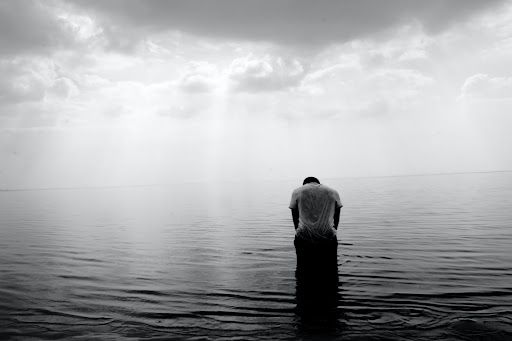
The Life after Death (Akhirah)
Regarding the afterlife, Muslims believe that life after death is one of the pillars of Iman. Islam presents a clear-cut understanding of the life after death. As mentioned in the Quran verse about death,
كُلُّ نَفْسٍ ذَآئِقَةُ ٱلْمَوْتِ ۗ وَإِنَّمَا تُوَفَّوْنَ أُجُورَكُمْ يَوْمَ ٱلْقِيَـٰمَةِ ۖ فَمَن زُحْزِحَ
عَنِ ٱلنَّارِ وَأُدْخِلَ ٱلْجَنَّةَ فَقَدْ فَازَ ۗ وَمَا ٱلْحَيَوٰةُ ٱلدُّنْيَآ إِلَّا مَتَـٰعُ ٱلْغُرُورِ
“Every soul has to taste death. It is on the Day of Judgement that you shall be paid your rewards in full. So, whoever has been kept away from the Fire and admitted to Paradise has really succeeded. The worldly life is nothing but an illusionary enjoyment. (Qur’an 3:185)
This life is a deceptive commodity. You may be fascinated by its splendor and brilliance. Some of the luxuries in this world may make you sad thinking that you could not enjoy all of those things. That is the state of material life. A believer is not one who indulges in worldly pleasures.
No matter how happy a person lives in this world, no matter how well he lives, he will die. After that you will have to move on to another life. The true believer is the one who remembers this every day, and makes the worldly life a farm for the Hereafter, and draws near to God with the maximum of his time capital.
Allah has fixed a particular age for all creatures. Days change on the calendar. It will also one day mark your last day. You are running into it. This is not to say that we should be disappointed. Instead, we should not be complacent about the comforts of this world. We look forward to the comforts here. We pray that you do not make us sick of the world. Your approach to the world must be balanced. Instead of running after it, you must be mature enough to use it for the Hereafter.
The Quran clearly states that every single human being will die. Not any single creature will remain on the face of earth. According to the Islamic rituals, when a person dies, he/she will be buried in the graveyard in a particular way. Islam teaches that from that moment the dead person starts his new life (the life of Akhira). This is the reality of afterlife in Islam.
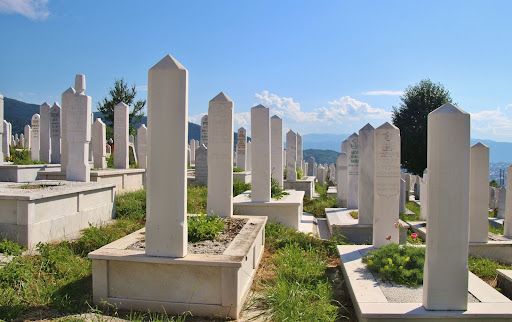
The Barzaqh (life in the grave) Life
The Hereafter is a vast space that stretches from man's death to the entrance to heaven or hell. The Barzaqhi life is the life period a Muslim spends in the grave following his death. The last day or the Day of Judgment will only put an end to this life. Islam teaches that, the grave of each and every person will either be a garden from the gardens of Paradise or a pit from the pits of fire, as reported in Hadith.
The third caliph, 'Uthman, did not weep when he was told about the heavens and hells. But when he was reminded of the grave, he burst into tears. When asked about it, he replied to a verse of the Prophet (peace be upon him). “The first abode in the Hereafter is the grave. The life of the one who is saved from it will be safe. The life of the loser will be full of hardships and hardships”
Entrance exams for some courses can be difficult. If you succeed in it, the next steps can be easily overcome. Thus, the successes and failures of a man are determined by the dynamics of the trials in the grave. It can be seen that the companions and their forefathers transformed their lives by constantly thinking about the life, questions, and horrors of the grave.
Rabi 'bin Haysam, one of the Tabi'is, specially prepared himself for the night in the grave. He had prepared a grave in his house and entered it frequently. In this way we can see many great people who have prepared themselves for the life in the grave in this worldly life itself.
The Day of Judgment
This universe will one day perish. Everything perishes except God and what He wills. After that, all humans will be resurrected. Then they will be brought before God, and they will be judged for their good and evil deeds. Those who do good will receive Paradise. Those who do evil will receive Hell. This day is called the last day.
The holy Quran contains so many verses explaining the horrific moments of the Day of Judgment. One of the instances you can read up in the Quran is Surah Takweer, verse 1 to 14, where Allah mentions the disastrous description explicitly.
It is known to everyone that this life is incomplete because no one dies by accepting the full result of their deeds. No one on this earth will receive the full reward of good or the punishment of evil. Another world becomes necessary to deliver true justice. On the Day of Judgment Allah almighty decides the destiny of every man and woman depending on his deeds. Allah Almighty is the only Master of the Day of Judgment.
Conclusion
In retrospect, this guide helps you to learn more about Islam and its fundamentals, especially if you are new to the deen, or have been wanting to learn about Islam. To be a true Muslim, you are required to understand these basics; the meaning and brief history of Islam, the six beliefs and the five pillars of Islam. InshaAllah, once you have a good grasp on the foundation integral to the Muslim faith, reflect upon the Quranic verses and Sunnah, as well as applying it in your life, you will be guided on the right path. May Allah grant you the clarity and guidance towards the path of Islam, InshaAllah.
[1] The hellfire
[2] A nomadic Arab society o f the desert
[3] The Arabic word for migration
[4] A successive narration is one conveyed by narrators so numerous that it is not conceivable that they have agreed upon an untruth thus being accepted as unquestionable in its veracity. The number of narrators is unspecified.
[2] A nomadic Arab society o f the desert
[3] The Arabic word for migration
[4] A successive narration is one conveyed by narrators so numerous that it is not conceivable that they have agreed upon an untruth thus being accepted as unquestionable in its veracity. The number of narrators is unspecified.
About Us
SimplyIslam Academy, a subsidiary of SimplyIslam.sg, is an online Islamic education centre, delivering quality Islamic courses via online since early 2021.
The online Islamic school provides indispensable learning on the various sciences of Islam, covering Qur’an, Hadith, Sirah, Fiqh, Tasawwuf, and others.
The online Islamic school provides indispensable learning on the various sciences of Islam, covering Qur’an, Hadith, Sirah, Fiqh, Tasawwuf, and others.
Follow us
Useful Links:
Thank you!

Learn Anytime, Anywhere
Copyright © SimplyIslam Academy. All Rights Reserved.
Get FREE Islamic reminders & be a better Muslim!
Get your spiritual pick-me-up and exclusive news right in your mailbox.
Thank you for subscribing to our newsletter!